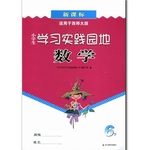题目内容
A supermarket checkout operator was praised for striking a blow for modern manners and a return to the age of politeness after refusing to serve a shopper who was talking on her mobile phone.
The supermarket manager was forced to apologize to the customer who complained she was told her goods would not be scanned unless she hung up her phone. Jo Clark, 46, said, “I don't know what she was playing at. I couldn’t believe how rude she was. When did she have the right to give me a lecture on checkout manners? I won’t be shopping there again!”
But users of social media sites and Internet forums(论坛) were very angry that store gave in and the public appeared to be supporting the angry checkout worker. “Perhaps this is a turning point for mobile phone users everywhere. When chatting, keep your eyes on people around you. That includes people trying to serve you, other road users and especially people behind you in the stairs,” said a typical post.
“It’s time checkout staff fought back against these people constantly chatting on their phones. They can drive anyone crazy. It’s rude and annoying. I often want to grab someone’s phone and throw it as far as I can, even though I am not a checkout girl, just a passer-by,” said another.
Siobhan Freegard, founder of parenting site www. Netmums.com said, “While this checkout operator doesn’t have the authority to order customers to switch off their phones, you can see clearly how frustrated and angry she felt. No matter how busy you are, life is nicer when you and those around you have good manners.”
1.According to Jo Clark, the checkout operator_____________.
A.lacked the knowledge of checkout manners
B.played with a mobile phone while at work
C.had no right to forbid her from using her mobile phone
D.deserved praise for her modern manners
2.The third and fourth paragraphs imply that the public_________.
A.are used to chatting on their mobile phones
B.are driven crazy by constant mobile calls
C.ignore the existence of mobile phone users
D.seem to support the checkout operator
3.The attitude of Siobhan Freegard towards the checkout operator was________.
A.disapproving B.supportive
C.neutral(中立的) D.indifferent
4.The passage is mainly about _________.
A.whether we should talk on our phones while being served
B.why we can talk on mobile phones while shopping
C.what good manners checkout operators should have
D.how we can develop good manners for mobile phone users
 仁爱英语同步练习册系列答案
仁爱英语同步练习册系列答案 学习实践园地系列答案
学习实践园地系列答案

 0 a.m.: Visit with people from the many participating organizations. Choose which activity you’d like to help with for the day.
0 a.m.: Visit with people from the many participating organizations. Choose which activity you’d like to help with for the day.